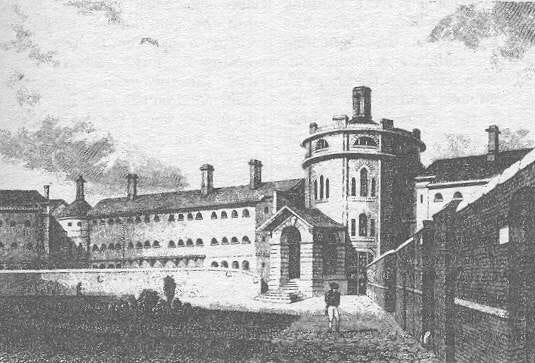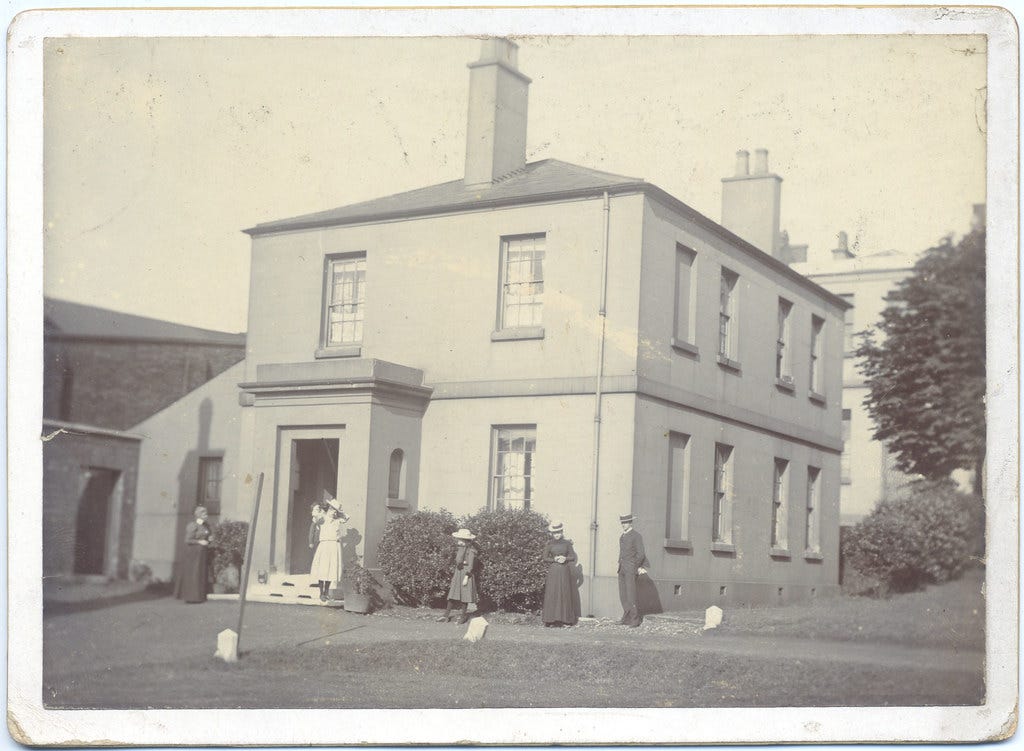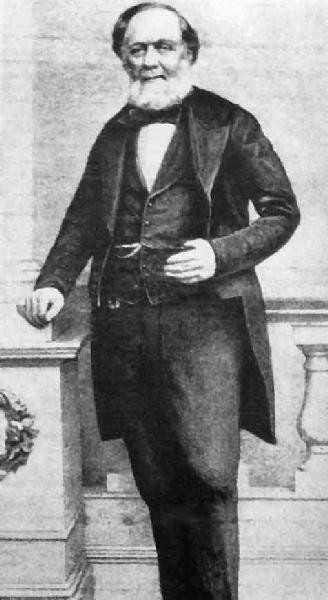Just after 1 p.m. on 4th July 1872 the 16 year old Marine Drummer boy George Stock staggered into the room of Marine Sergeant Plumpstead at the Barracks at Chatham. When the Sergeant looked up at him he saw the boy’s throat had been slashed and blood was streaming down his neck.
George Stock had been born on 29th October 1855 in Chatham, the son Frederick, a serving Royal Marine, and Elizabeth and later christened as a Methodist on 6th January 1856. He had followed his father into service and was serving as a drummer boy in the 33rd Company of the Chatham Division of the Marines. His career would be viciously cut short by James Tooth.
James Tooth was a 41 year old long serving Marine, having served for twenty two years, who had a bit of trouble with drink so much so that he had been demoted for being drunk in the barracks which left him very bitter and cross. He tried to regain his rank but would later be a suspect in the theft of a ring which barred any reinstatement to NCO and he again turned to drink. Whilst deep in his alcoholic haze he thought of who was to blame for all of this misfortune and there was one clear person - George Stock.
The boy had been responsible for his being reported for being drunk and/or (depending on the source you read) for his being drunk.
It was lunch time and Stock was sitting alone in the Private’s reading room at the rear of the barracks alone with a book. Tooth approached him from behind without being detected, drew a pocket razor from his pocket and slashed the boy’s throat before retreating from the room and heading for the wash room to wash the blood from his hands where he was seen and soon arrested.
Stock had been rushed to the Melville hospital which was situated opposite the dockyard and served as the Maritime hospital from 1827-1905 when the Medway Maritime Naval hospital was built just off the Great lines, but he died later that day from his injuries.
Tooth was brought before Lieutenant Price, the orderly Officer, to answer for his actions and readily admitted to his crime but when Price pushed him for a motive he replied;
“That’s my business”
Price, frustrated and angry, had him taken away to the cells and into the custody of Provost Sergeant Fowler where he readily handed over the blood soaked razor from his trouser pocket. He did admit to the Sergeant that he had killed the boy to get his revenge for his demotion and that “now I have got it”.
Fowler would report that Tooth was calm and quiet and his only request was for a rag to lie on.
On 13th August in Maidstone Prison James Tooth woke for the last time in the condemned cells. Three executions were to be carried out that morning including Francis Bradford, a soldier from the 3rd East Kent Regiment who had stabbed a sleeping comrade whilst in barracks in Dover and Thomas Moore who had murdered his wife. The Prison Chaplin, Mr Fraser, visited the prisoners and saw to the last rites of Moore and Bradford, though not to Tooth as he was a Wesleyan, and reported that Tooth, and the other accused conducted themselves “in a most exemplary manner since their conviction” during the Summer Assizes by Mr Baron Bramwell.
The Saturday before Tooth had requested paper and ink to write a letter to George’s brother, a Corporal in the Marines to ask for forgiveness;
He addressed him as "Dear Corporal Stock," and went on to say that he was about to ask him to do something which he was afraid was very difficult, and it was to forgive him for the ------of the poor boy, his brother. The prisoner went on to say that it had been reported that he committed the act from some feeling of revenge, but he assured him, on the word of a dying man, and who would soon be in the presence of his God, that no such feeling ever entered into his mind, and that he loved the poor boy," and at the time he committed the act he did not know what he was doing. The prisoner requested him to forgive him, and to write to him to that effect. It appears, however, that the brother of the murdered lad, instead of writing ex- pressed a wish to see the prisoner, and to assure him that he forgave him, and he had an interview with the prisoner, who again assured him that he entertained no malice towards the deceased, and that the act was quite unpremeditated. The brother told him that he forgave him, and the prisoner appeared a good deal gratified by what he said. - The Cambrian 16th August 1872
The report continued;
The execution was fixed to take place at half-past nine o'clock, and shortly before that time Mr. Brennen. the Under Sheriff of the county of Kent, arrived at the prison with some of his officers, and at this time the representatives of the press were also admitted. The ceremony of pinioning then took place by Calcraft and his assistant. Moore was the first who was taken to the scaffold, and then Bradford, and while the preparations were going on the other culprit, Tooth, remained in the cell with the Rev. Mr. Allen. All the prisoners exhibited extraordinary firmness, indeed Tooth appeared perfectly unconcerned, and no one could have imagined, from his cool and collected demeanour, the awful position in which be stood When all was ready, he also was taken to the scaffold, and the rope was at once placed round his neck, and the drop fell almost immediately. Tooth and Moore, who were large, heavy men, appeared to die almost instantaneously.
The executioner was the prolific William Calcraft who had been serving as a hangman since 1829 and would oversee 450 executions in his 45 year career but his methods were not the most humane. I’d say they weren’t successful but the condemned were executed…
Calcraft was a proponent of the “short drop” method which meant that once the trapdoor opened on the scaffold the convicted would fall a short distance and if they were not heavy enough they would be strangled to death rather than have their neck broken and indeed during this execution, Bradford was not killed by the drop and struggled for life violently for two to three minutes before passing. There are examples of Calcraft botching several executions in his career using this method.
After an hour the bodies were cut down and examined by the Borough Coroner, Mr Dudlow, and the verdict of “dead” was passed. Tooth and the other convicted were buried within the Prison grounds, allegedly vertically to stop the spirits from being able to rest peacefully. George Stock was buried at Fort Pitt Military cemetery.
There are several stories that have lived on from this event that have sensationalized the case including that the boy was dismembered and placed in his drum which was then thrown into the Medway or that he was fully decapitated but the reports do not bear this out. There are also reports of hauntings of the Dockyard’s Ropery building by a headless drummer boy which has featured in programs such as “Most Haunted” but unless there was another drummer killed…. That and the Marine barracks was not on the current Dockyard grounds but to the west of Gun Wharf so any haunting would be there.






